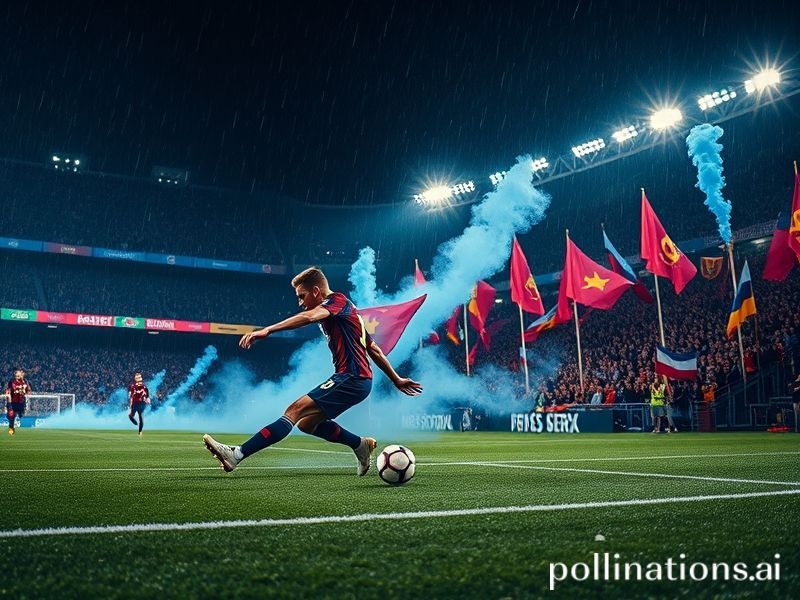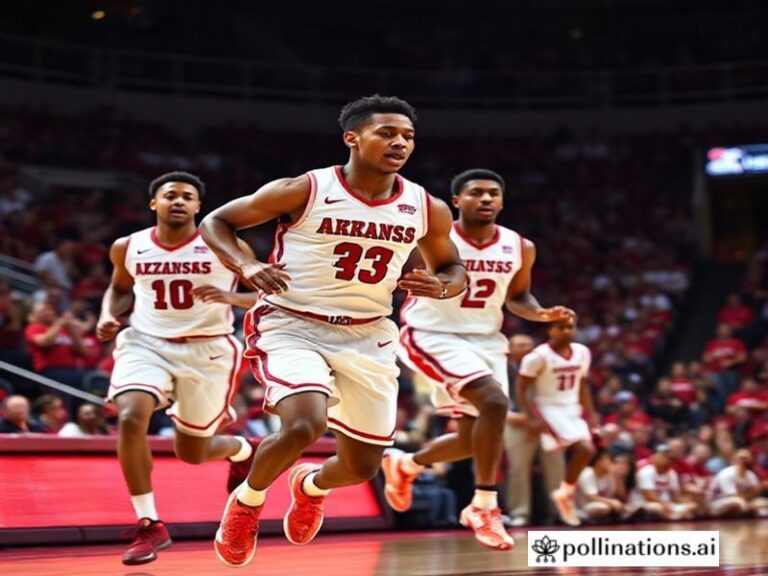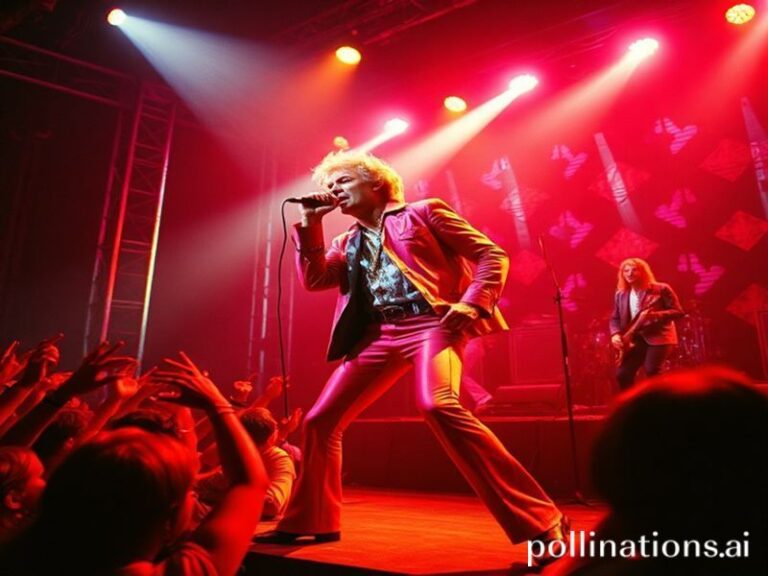Barça vs Espanyol: A Catalan Class War with Extra VAR and Lukewarm Beer
Barcelona, Spain – Somewhere between the paella fumes and the Catalan independence flags flapping like forgotten laundry, 94,000 souls crammed into Camp Nou to watch a football match that doubles as a referendum on class warfare. The fixture—Barcelona versus Espanyol, the city’s “other” club—has always been billed as the Derbi Barceloní, but viewed from any capital more than a budget-flight away, it’s less a derby and more a slow-motion sociology experiment with a ticketing surcharge.
To the uninitiated, the scoreboard read 2-1 for Barça, which sounds routine until you realise the global audience wasn’t really here for the goals. They tuned in for the same reason people rubberneck at a crypto-exchange implosion: to watch an elite institution pretend it’s still solvent while its poorer cousin hurls rotten tomatoes from the cheap seats. Espanyol, a club whose Wikipedia page still lists “surviving” as a major trophy, arrived in 19th place, leaking goals like a sieve and dignity like a Twitter executive. Their ultras unfurled a banner reading “Ni un pam de terra” (“Not one inch of land”)—a slogan simultaneously about football grounds and, depending on who you ask, the entire Iberian Peninsula.
Meanwhile, Barcelona’s new midfield prodigy—let’s call him Pedri 2.0 to save the trademark lawyers’ time—dribbled through Espanyol’s defence like a Goldman Sachs intern through regulatory loopholes. His second goal came courtesy of a VAR decision so microscopic it required the same slow-motion replay technology the UN now uses to investigate war crimes. Espanyol’s manager, a man whose post-match press conferences increasingly resemble hostage videos, complained that the decision was “anti-worker,” thus completing the rare feat of blaming both capitalism and the referee in the same sentence.
The international significance? Consider the broadcast map: Lagos, Jakarta, Toronto, Riyadh. In each market, commentators translated the match into their own domestic psychodrama. Nigerian pundits framed it as “Big Man vs. Small Man”; South Koreans compared Espanyol to Samsung’s doomed smartphone division; Canadians politely suggested revenue-sharing. Only in the United Kingdom did the pundits miss the subtext entirely, droning on about “xG” until viewers switched to a rerun of Parliament heckling itself into oblivion.
Back in the stands, the tourist demographic shifted with each goal. When Barcelona scored, influencers from Dubai performed choreographed dances for their 0.7-second TikTok clips. When Espanyol equalised, a cluster of gap-year backpackers discovered irony isn’t a currency accepted at the concession stands. And when the final whistle blew, the stadium DJ queued up “Que tinguem sort” (“May we have luck”), a Catalan classic now used ironically by fans who’ve calculated their luck precisely and found it indexed to Spotify streams.
Off the pitch, the match was a masterclass in late-capitalist contradictions. Barcelona’s shirt sponsor is a cryptocurrency exchange currently under investigation on three continents, while Espanyol’s is a regional scaffolding company—one club sells imaginary coins, the other literally holds things up. Both sets of fans, however, paid the same 7-euro price for a lukewarm beer, proving that inflation is the only egalitarian left in Europe.
As the crowd dispersed into the Barcelona night, the city’s seagulls—those airborne racists who steal sandwiches from children and votes from separatists—circled overhead like vultures at a merger announcement. Somewhere in the metro, an Espanyol supporter muttered that at least relegation would make tickets cheaper, which is exactly the sort of gallows humour that keeps the working class alive and the middle class buying wellness retreats.
Final verdict: Barcelona won the match, Espanyol won the moral high ground (valued on current markets at roughly €3.50), and the rest of us won a reminder that tribalism is just globalisation wearing a cheaper scarf. Tune in next week when the same teams meet again in the Copa del Rey, because nothing says “eternal recurrence” like a rematch nobody asked for but capitalism demanded.







